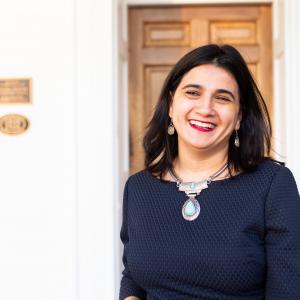It's time to take journalism education beyond the classroom.
Enter veteran foreign correspondent and editor Magda Abu-Fadil, who founded and directed the journalism training program at the American University of Beirut, left the school earlier this year to start an independent training firm.
Through Media Unlimited, Abu Fadil and Sanaa El Jack teach basic reporting, investigative journalism and ethics in the Middle East and beyond in Arabic, English and French. Recent clients include universities, news agency Ria Novosti and a UN agency.
IJNet spoke with Abu Fadil about the training needs of Arab journalists.
IJNet: What kind of training do Arab journalists need now?
Magda Abu Fadil: Arab journalists need regular training in all areas and across the hierarchical board. They're not monolithic, so it's not fair to generalize. Countries in transition as a result of revolts are going through an adjustment period of opening up, without having the requisite skills to question authority and hold public officials to account, for example.
Investigative journalism would have been anathema under their former regimes. But they're not yet where some of their journalists would like to be. So they need coaching in how to dig for information, how to figure out complex data, how to ask the right questions, how to be persistent, without being obnoxious. What a lot of Arab journalists lack is patience.
IJNet: Are journalism schools becoming obsolete?
M.A.F: Not entirely obsolete, but a lot of the ones in the Arab world have to retool fast to keep up with the fast-paced technology and requirements on the scene today.
Unfortunately, you still have faculty members who have Ph.D.s and have been at universities for decades who've never practiced journalism, done any field reporting, never ran a newsroom, never shot video, never blogged or tweeted, who have the gall to teach journalism and think interactivity is for them to talk about inverted pyramids and for their students to sit and listen.
Yes, you still need to invest in a university education because it provides a framework for you...But one shouldn't be limited to that. Working on the side, being involved in internships, acquiring pre-graduation experience is also valuable.
IJNet: There's a lot of local media training in the MENA region. Does the region still need the support of international media development organizations?
M.A.F: There are countless local, regional and international media training organizations in the MENA region but quality is what makes a difference. Hanging out a shingle and saying you can train doesn't necessarily make you credible.
There will always be a need for support from international media development organizations because they provide a necessary lifeline to many journalists that lack the financial means. But a lot of those programs come with too many strings attached and not enough attention is being paid to what the locals need.
Photo: Magda Abu Fadil


